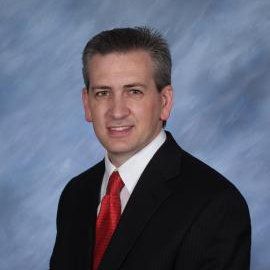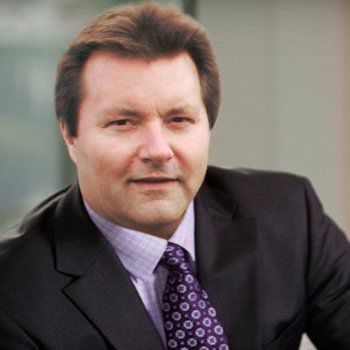What Is A Process FMEA Failure Cause?
Process condition, that if present, can lead to the Failure Mode. When defining conditions that can lead to Failure Modes, it is important to only list root causes of Failure Modes. Three mistakes commonly made are listing operator error, incorrect setup or equipment malfunction as Failure Causes. Another common mistake made is to establish the Occurrence Rating based on the probability of the cause.
"Harpco Systems provides some of the most technologically advanced FMEA software tools on the market, but its their disciplined technique that further separates them from all the rest. Harpco breaks down the barriers and corrects the pitfalls so companies can reap the full benefits of FMEA. Classroom training not only properly teaches FMEA, but participants actually build their business's FMEA as they go and are often blown away by how much work got accomplished. Harpco Systems has become known as the Modern FMEA for a reason. Its structured, simplified and sustainable. Thanks Richard for opening our eyes and the FMEA Flip is awesome!"
"We used QPlus to achieve Q1 and ISO 16949 successfully at the Ford Motor Co. Monroe BAO Plant. The software promoted linked documentation that prevented issues at internal and external audits. Assured the quality documents at the operations production level had all relevant and concurrent information that was reviewed in the program files. QPlus allowed the program members to create a baseline "Hot End Exhaust" database that produced linked documentation from the DFMEA to the production visual aids the operators used to perform correctly."
"I have been working with Harpco Systems for 20 yrs and have seen how their products and services continue to improve to meet customer demands. Finding a disciplined approach to relate field performance to product design specifications is rare. There just is no uncomplicated way to do this correctly. Harpco’s approach handles all the complication internal to their software so the engineers can focus on other aspects of their job. Because the known failure mechanisms and causes are mapped, this information can be used for problem solving and driving continuous improvement in manufacturing. Harpco’s training is first rate and helps develop new ways of thinking about the importance of creating proper specifications early. Separately, I’ve seen firsthand the effectiveness of using their approach in problem solving, helping to advance problems that had reached a stall using traditional methods."
Rich was asked to help us put together a Design Control and Risk Management program for our Immunodiagnostics products. Rich worked with us to build the necessary infrustructure to make the system comprehensive for the level of complexity needed to handle our products. During this time, Rich was not only helpful in putting the system in place, but also educating us on the thought process to evaluate product design and process control. In doing so, Rich provided us with the fundamental concepts to be able to decompose any product or process problem to arrive at an effective solution. He has left a lasting impression on our organization.
Rich has introduced FMEA's for a new product development project I have been working on. His training of the method and the usage of his software was very clear and easy to follow. He demonstrated a high degree of expertise in the area of FMEA and different approaches to it. He was open to questions and extremely enthusiastic explaining it thoroughly. In his role as a FMEA consultant I have experienced him as a great mentor for quality methodology. He was very clear in communicating his thoughts and structure of how to organize and facilitate the FMEA process. His leading questions helped facilitating the right thought process to achieve a high level of understanding FMEA and its interconnections specific to the project. Rich was very sensitive to the individual FMEA challenges and demonstrated a highly cooperative style in overcoming hurdles while maintaining the process. His response to questions and requests have always been immediate. I certainly would recommend Rich for any FMEA activities related to product development.
There are many that profess to know how to use FMEA's to design and produce products that meet all of the customer's requirements. But I never met anyone quite like Rich who can take any product concept and lead a design team in setting up a powerful, reusable tool that lives long after he finishes his work. If you need someone to teach engineers how to check off the requirement to have a FMEA as part of the APQP documentation then you don't need Rich. If you want someone that can teach engineers the right way to prepare FMEA's then you will find no better teacher, coach, implementer than Rich Harpster of Harpco Systems.
I would like to thank Harpco Systems for the help, advice and frankly the education in how to design, develop, source and manufacture new to world products. Not only was the Harpco Systems process scrupulously meticulous in making us evaluate, question, define and then justify every single aspect of our product design, project risks and manufacture process, it was done at a pace that saved us months by not following our conventional processes. By cutting out all the waste and focusing our resources on what was truly important Harpco Systems enabled us to get to a state of production readiness months ahead of our projected schedule. This combined with the incredibly detailed, well documented and most importantly correctly linked/associated technical and risk file information prepared us with a watertight project file with no liabilities missed. Harpco Systems has changed the way myself and others approach product design and development for the better."
"We were very fortunate to work with Rich Harpster and his team as we improved our DFMEA process at Calsonic. There is no better teacher, coach, implementer than Rich when it comes to creating a knowledge base for engineers to use in creating part specs to assure that products meet the customer's requirements. Rich teaches the basics, then he accelerates the FMEA process so that requirements and specs are related in a database that can be continually updated."






